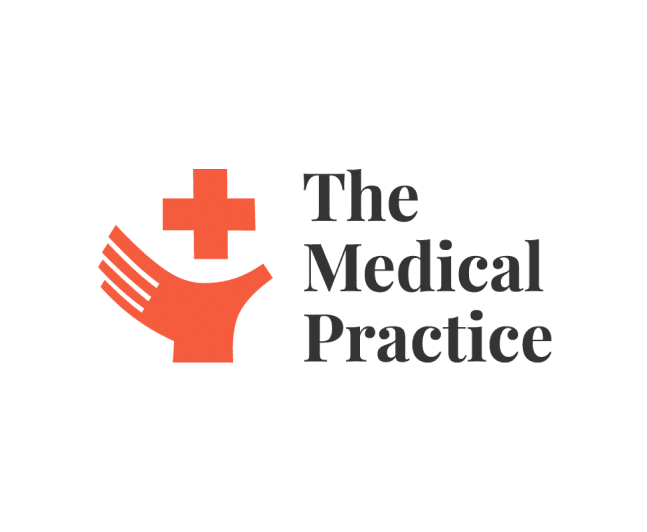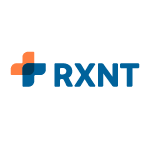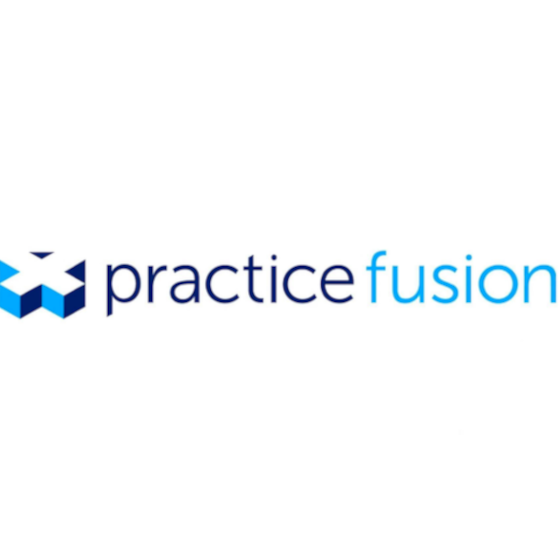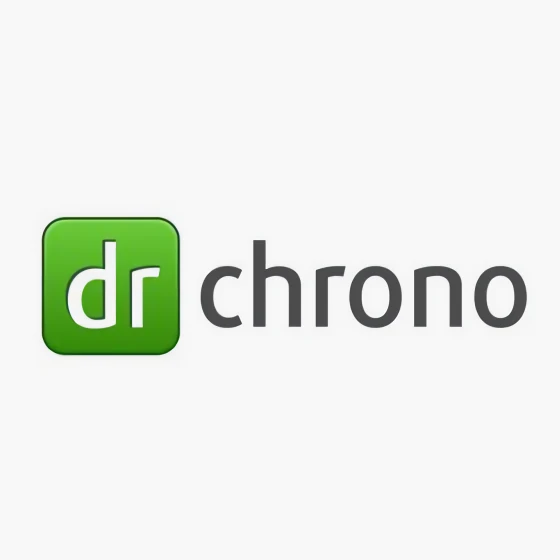10 Best Prescription Writing Software Shortlist
Here's my pick of the 10 best software from the 20 tools reviewed.
Our one-on-one guidance will help you find the perfect fit.
As a clinician who's navigated the ever-evolving digital landscape, I understand the importance of a robust e-prescribing software system. With electronic prescription software, gone are the days of traditional faxing methods. Instead, I've welcomed HIPAA-compliant EHR software, offering formulary checks and patient’s medication history right from my iPad, iPhone or Android devices.
Prior authorization processes are streamlined, and instant access to prescription history ensures informed decisions for optimal patient outcomes. If you're looking for a medical software solution to enhance your practice's efficiency, then the e-prescribing solutions I've evaluated could be just what you need.
What Is A Prescription Writing Software?
Prescription writing software, often incorporated within broader Electronic Health Record (EHR) systems, is a specialized tool used by healthcare providers to create, manage, and send prescriptions digitally to pharmacies. This technology provides a secure, error-free, and efficient method for prescribing medications, thereby reducing the risk of medication errors linked to illegible handwriting or misunderstood oral instructions.
Physicians, nurses, and other healthcare professionals utilize these systems to streamline their workflow, enhance patient safety, and ensure compliance with ever-evolving healthcare regulations. Furthermore, these digital solutions offer integrated features like drug interaction checks and patient medication histories, supporting informed decision-making in patient care.
Best Prescription Writing Software Summary
| Tool | Best For | Trial Info | Price | ||
|---|---|---|---|---|---|
| 1 | Best for its ambulatory-focused solutions, ideal for outpatient services | Free demo available | Pricing upon request | Website | |
| 2 | Best for real-time drug interaction alerts | Free demo available | Pricing upon request | Website | |
| 3 | Best for electronic prescribing, enhancing medication safety | Free demo available | From $110/month/provider | Website | |
| 4 | Best for real-time, actionable insights into practice performance | Not available | Pricing upon request | Website | |
| 5 | Best for value with its affordable, feature-rich platform | Not available | From $149/user/month (billed annually) | Website | |
| 6 | Best for cloud-based EHR and practice management suite, optimal for remote access | Free demo available | From $429/user/month (billed annually) | Website | |
| 7 | Best for integrated practice management and patient engagement features | Not available | From $449/user/month | Website | |
| 8 | Best for its user-friendly interface and mobile functionality | Free demo available | From $199/user/month (billed annually) | Website | |
| 9 | Best for small to medium practices looking to streamline patient care | Not available | From $69/user/month (billed annually) | Website | |
| 10 | Best for its customizability, ensuring a fit for any medical specialty | Not available | From $799/user/month | Website |
Best Prescription Writing Software Reviews
NextGEN
Best for its ambulatory-focused solutions, ideal for outpatient services
NextGEN is a feature-rich healthcare software designed with a strong focus on ambulatory care settings. It offers a comprehensive suite of tools, including EHR, practice management, and specifically, ambulatory-focused solutions that provide efficient workflows for outpatient services. NextGEN’s targeted solutions make it an ideal choice for outpatient clinics and other ambulatory care providers.
Why I Picked NextGEN:
NextGEN makes the list because of its unique approach to outpatient services. Unlike many competitors, it offers solutions specifically tailored for ambulatory care settings, which distinguishes it in the market.
I found NextGEN to be best for outpatient services because its ambulatory-focused solutions can drastically improve workflow efficiency in these settings. By catering to the unique needs of outpatient clinics, NextGEN can enhance the quality and speed of patient care in such environments.
Standout Features and Integrations:
NextGEN shines with its robust EHR management, appointment scheduling, and billing features that are all tailored for outpatient service providers. Additionally, its prescription management tool improves medication safety and adherence. NextGEN can integrate seamlessly with a variety of healthcare platforms, such as laboratories and pharmacies, ensuring a holistic view of patient health and seamless transfer of data.
Pros and cons
Pros:
- Seamless integrations with other healthcare systems
- Comprehensive EHR and practice management tools
- Tailored solutions for ambulatory care settings
Cons:
- It may not be the best fit for inpatient care settings
- The learning curve may be steep due to its extensive functionalities
- Lack of transparent pricing information
Athenahealth offers prescription writing through its comprehensive cloud-based healthcare platform known as athenaOne, which integrates a variety of software and services aimed at enhancing clinical effectiveness, patient experience, and financial performance for healthcare providers. Athenahealth serves a diverse range of organizations, from small practices to large health systems, and aims to simplify healthcare management while maximizing efficiency and profitability.
Why I Picked Athenahealth: Athena Health's prescription writing software, integrated within its comprehensive electronic health record (EHR) system, offers a range of features that significantly enhance the efficiency and safety of the prescribing process. Through electronic prescribing (e-prescribing), Athenahealth allows healthcare providers to send prescriptions directly to pharmacies electronically. This not only reduces the risk of prescription errors associated with handwritten prescriptions but also speeds up the medication dispensing process, ensuring that patients receive their medications promptly.
Standout Features & Integrations:
Key features include simplified documentation, which reduces distractions and time spent on documentation during patient encounters, and intuitive workflows with customizable templates that streamline the documentation process. Additionally, specialty-specific workflows tailor documentation to meet the unique needs of various medical specialties, and mobile documentation allows physicians to document encounters on-the-go using customized tools. Integrations include Schiller Cardiovit, Welch Allyn, Biotel Digitrak XT, iRhythm Zio XT, Midmark Holter, Midmark IQspiro, Welch Allyn SpiroPerfect, Welch Allyn PC-Based Exercise ECG, Midmark IQstress, Withings BPM Core, iHealth Wave, Epion, Yosi Health, Allink, Relaymed, Epion, and Phreesia.
Pros and cons
Pros:
- direct electronic prescribing feature
- Customizable templates
- User-friendly patient portal
Cons:
- Ongoing billing costs may not be suitable for all practices
- Slight learning curve
RXNT is a healthcare software solution that shines in electronic prescribing, which plays a critical role in enhancing medication safety and reducing prescription errors. This tool simplifies the prescription process, making it more efficient and safe. With RXNT, practices that prioritize medication safety and streamlined prescription management will find a valuable ally.
Why I Picked RXNT:
RXNT caught my attention due to its strong focus on electronic prescribing. Many solutions include this feature, but few make it their headline. I chose RXNT as the best for electronic prescribing because of its specific focus on streamlining this process and improving safety and efficiency, which can greatly enhance patient care and operational workflows in practices.
Standout Features and Integrations:
RXNT provides an efficient electronic prescribing system that supports e-prescriptions for controlled substances (EPCS) and includes real-time drug interaction checks. Its system integrates with pharmacy databases nationwide, ensuring accurate and timely dispensing of medications. Furthermore, it can be integrated with the rest of RXNT's suite of solutions, including EHR and practice management systems.
Pros and cons
Pros:
- Integrations with national pharmacy databases
- Real-time drug interaction checks
- Robust electronic prescribing features
Cons:
- Customer service might be improved
- User interface may not be intuitive for all users
- More advanced features require higher-cost plans
Best for real-time, actionable insights into practice performance
athenahealth offers a cloud-based suite of services, including electronic health records, practice management, and patient engagement tools. Central to its value proposition is the delivery of real-time, actionable insights that help practices optimize their performance.
These insights, coupled with its other robust features, make athenahealth a top choice for practices aiming to improve their operations based on real-time data.
Why I Picked athenahealth:
athenahealth made my list due to its impressive capability of offering real-time insights into practice performance. This focus on data-driven decision-making sets it apart from other software, as it goes beyond merely offering healthcare management tools.
I selected athenahealth as best for practices seeking real-time, actionable insights because of its unique ability to deliver meaningful data that can help practices make informed decisions and improve patient care.
Standout Features and Integrations:
athenahealth boasts a powerful suite of features, including electronic health records, appointment scheduling, billing, and a patient portal. However, its standout feature is its real-time reporting, which provides actionable insights into practice performance. When it comes to integrations, athenahealth connects with a host of healthcare systems, including pharmacies, laboratories, and billing platforms, ensuring a smooth flow of data across different care components.
Pros and cons
Pros:
- Broad range of integrations with other healthcare systems
- Comprehensive cloud-based suite of healthcare services
- Real-time, actionable insights into practice performance
Cons:
- Additional training may be necessary to fully utilize its robust features
- Some customers report occasional lags in the software
- The interface might be complex for some users
Best for value with its affordable, feature-rich platform
Practice Fusion offers a cloud-based EHR solution that stands out for its affordability while still providing a comprehensive feature set. Practices seeking a balance between cost and capabilities will find Practice Fusion a strong contender, offering a broad range of tools without stretching the budget.
Why I Picked Practice Fusion:
I picked Practice Fusion for its admirable value proposition. Despite being one of the more affordable options on the market, it doesn't compromise on features. I deemed it best for value due to its rare blend of affordability and extensive functionality, offering a wealth of features for a fraction of the cost of some competing platforms.
Standout Features and Integrations:
Practice Fusion offers a full suite of EHR tools, including charting, scheduling, e-prescribing system, and billing. A standout feature is its patient portal, which enables secure patient-provider communication and online appointment booking. As for integrations, Practice Fusion connects with numerous healthcare systems, pharmacies, labs, and imaging centers, ensuring a seamless, integrated care process.
Pros and cons
Pros:
- Broad range of integrations with other healthcare systems
- Integrated patient portal for enhanced patient interaction
- Affordable option with extensive features
Cons:
- Customer support can be improved
- Additional training may be required for less tech-savvy staff
- Some users report the interface can be slow
Best for cloud-based EHR and practice management suite, optimal for remote access
AdvancedMD is a healthcare software solution offering a suite of tools, including a cloud-based electronic health record (EHR) and practice management system. With its cloud-based design, it allows for convenient remote access and is well-suited for practices that value flexibility and accessibility.
AdvancedMD’s commitment to providing a remote-friendly platform makes it ideal for teams that operate across multiple locations or require on-the-go access.
Why I Picked AdvancedMD:
AdvancedMD stood out to me due to its strong emphasis on cloud-based solutions. In a market where many systems are locally hosted, this cloud-first approach sets it apart. AdvancedMD is the best for practices seeking a cloud-based EHR and practice management suite because of its ability to provide flexible, remote access to critical healthcare systems.
This means staff can access patient records, scheduling tools, and prescription management features from virtually anywhere, a boon in today's increasingly mobile world.
Standout Features and Integrations:
AdvancedMD offers a complete EHR system that includes medical billing, practice management, and a telemedicine platform. Its cloud-based design allows for quick access to the system from virtually any device. In terms of integrations, AdvancedMD can connect with a variety of other platforms, including billing systems, pharmacies, and other healthcare providers, ensuring seamless information flow across the healthcare continuum.
Pros and cons
Pros:
- Robust telemedicine features
- Remote access capabilities
- Comprehensive cloud-based EHR and practice management suite
Cons:
- Limited customization options
- It may be complex for less tech-savvy users
- High starting price
Best for integrated practice management and patient engagement features
eClinicalWorks is a unified healthcare IT solution, offering features such as electronic health records, practice management, and particularly patient engagement tools. With its commitment to integrating various aspects of patient care and management within a single platform, eClinicalWorks is a stellar choice for practices aiming to blend efficiency and patient engagement seamlessly.
Why I Picked eClinicalWorks:
I chose eClinicalWorks because of its integrated approach to practice management and patient engagement. While many systems focus on either administration or patient interaction, eClinicalWorks strikes a balance, offering a well-rounded platform that caters to both aspects.
I deem eClinicalWorks best for practices seeking integrated practice management and patient engagement due to its ability to marry these two critical facets of healthcare. Its tools empower providers to manage their operations efficiently while enhancing the patient experience.
Standout Features and Integrations:
eClinicalWorks provides robust practice management features, including scheduling, billing, and reporting. It also offers an innovative patient portal that facilitates messaging, appointment scheduling, and access to health records. On the integration front, eClinicalWorks supports numerous healthcare platforms, from laboratories to pharmacies. This means it can provide comprehensive patient health data and facilitate a seamless healthcare delivery process.
Pros and cons
Pros:
- Numerous integrations with other healthcare platforms
- Comprehensive feature set for a wide variety of healthcare practices
- Integrated practice management and patient engagement
Cons:
- Limited customization options for specific practice needs
- It may require significant training due to its extensive functionalities
- Relatively high starting price
DrChrono
Best for its user-friendly interface and mobile functionality
DrChrono is a healthcare IT solution offering an array of tools, including EHR, practice management, and medical billing. Its standout attribute is the user-friendly interface, complemented by a highly efficient mobile functionality that allows for on-the-go access. DrChrono is an excellent choice for practices valuing an intuitive, mobile-optimized experience.
Why I Picked DrChrono:
DrChrono attracted me because of its emphasis on user-friendliness and mobile functionality. In a market where complex interfaces are a norm, this approach sets it apart. I view DrChrono as the best for practices seeking an intuitive interface and mobile features, given its commitment to simplifying workflows and enabling access to healthcare systems from anywhere, anytime.
Standout Features and Integrations:
DrChrono provides a user-friendly EHR system that simplifies record-keeping and streamlines appointment scheduling and billing. Moreover, its mobile application is optimized to provide all features on your mobile device. DrChrono can connect with a host of other platforms, like laboratories, pharmacies, and radiology centers, ensuring seamless interoperability and enhancing care delivery.
Pros and cons
Pros:
- Numerous integrations with other healthcare platforms
- Strong mobile functionality for on-the-go access
- User-friendly interface for simplified workflows
Cons:
- Customer service may be slow at times
- Initial setup can be time-consuming
- Some features may require additional payment
Lytec is a robust medical practice management system designed to optimize the daily operations of small to medium-sized practices. It offers a range of tools including electronic health record management, appointment scheduling, billing, and crucially, prescription writing.
Given its intuitive design and comprehensive suite of features, Lytec is particularly advantageous for practices seeking to streamline their workflow and enhance patient care efficiency.
Why I Picked Lytec:
I selected Lytec because of its potent blend of features that serve the unique needs of small to medium-sized practices effectively. Its user-friendly interface and multi-functional capabilities set it apart from many competitors.
Lytec stands out as the best for practices keen on streamlining patient care because it offers a unified platform where healthcare providers can manage various aspects of their operations, including prescription writing, without having to navigate multiple systems.
Standout Features and Integrations:
Lytec provides a seamless electronic prescribing feature, reducing errors and improving the speed of prescription processing. Additionally, its robust billing and scheduling modules enhance the overall management of the practice. It also offers an integrated patient portal for improved patient engagement.
As for integrations, Lytec supports connectivity with multiple laboratories and radiology centers, providing practices with a holistic view of patient health. It can also be integrated with EHR systems for comprehensive patient record management.
Pros and cons
Pros:
- Intuitive and user-friendly interface
- Integrated electronic prescribing feature
- Comprehensive practice management tools
Cons:
- Lack of transparent pricing information on the website
- The system may require a learning curve for less tech-savvy users
- Potential additional costs for training and support
Prime Suite is a healthcare software developed by Greenway Health that offers robust EHR and practice management solutions. Its standout feature is the high level of customizability, making it a flexible option suitable for any medical specialty. If your practice values a bespoke solution tailored to your unique needs, Prime Suite could be a perfect match.
Why I Picked Prime Suite:
Prime Suite stood out to me because of its incredible customizability. While many solutions offer a one-size-fits-all approach, Prime Suite breaks the mold by offering features that can be tailored to the needs of different medical specialties.
I selected Prime Suite as the best for its customizability because of its ability to adapt to the specific requirements of any medical specialty, offering a highly personalized user experience.
Standout Features and Integrations:
Prime Suite provides robust EHR and practice management features, including appointment scheduling, billing, and electronic prescribing. Its customization options allow practices to tailor workflows to their specific needs. Regarding integrations, Prime Suite can connect with a variety of other healthcare platforms, such as pharmacies, laboratories, and radiology centers, ensuring a smooth and integrated care delivery process.
Pros and cons
Pros:
- Numerous integrations with other healthcare systems
- Comprehensive EHR and practice management features
- Highly customizable, ensuring a fit for any medical specialty
Cons:
- Potential extra costs for training and support services
- The interface might be complex for some users
- High starting price
Other Prescription Writing Software
Below is a list of additional prescription writing software that I shortlisted, but did not make it to the top 10. Definitely worth checking them out.
- AllScripts
For comprehensive EHR solutions across all care settings
- Cerner Millenium
For advanced data analytics and patient insights
- Tebra
For independent practices seeking an all-in-one EHR solution
- CareCloud
Good for streamlined administrative, financial, and clinical operations
- PatientNow
Good for aesthetic medical practices requiring patient engagement tools
- AestheticsPro
Good for aesthetics clinics focusing on HIPAA cloud-based software solutions
- ModMed
Good for specialty-specific EHR, practice management, and billing solutions
- digitalRX
Good for budget-conscious pharmacies seeking a complete pharmacy management solution
- PrescribeWellness
Good for pharmacists aiming to transform their services into health destinations
- RxMaster
Good for pharmacies requiring a customizable, user-friendly platform
Related Patient Care Software Reviews
- Pharmacy Software
- Pharmacy Management System
- Interactive Patient Care Systems
- Care Management Software
- Patient Experience Software
Selection Criteria For Prescription Writing Software
When evaluating prescription writing software, I've gone beyond basic vendor pitches and free trial accounts. I've rigorously tested these tools, navigating their dashboards, trying out their features, and thoroughly analyzing their functionalities. Having personally explored over 50 tools, these are the cream of the crop, ticking the boxes for all crucial criteria such as core functionality, key features, and usability.
Core Functionality
- Ability to write, send, and track prescriptions
- Robust database of medications
- Integration with pharmacy databases
- Drug interaction alerts
- Patient history tracking
Key Features
- E-Prescribing: Electronically send prescriptions directly to the patient's preferred pharmacy
- Drug Interactions: Detect potential drug-drug, drug-food, and drug-allergy interactions
- Medication Database: An extensive, up-to-date database of medications, with dosages, side effects, etc.
- Patient Information Management: Easy access and management of patient history, allergies, and more
- Integration: Seamless integration with EHR/EMR systems and labs for holistic care
Usability:
- User Interface: Intuitive design is paramount for prescription writing software. It should be simple enough for first-time users to navigate with minimal guidance, with clearly labeled buttons and easy access to all features.
- Mobile Access: Since healthcare professionals are always on the go, having a mobile version or app that replicates the full functionality of the desktop version is essential.
- Learning Curve: The tool should have an easy learning curve. Extensive training should not be required to understand how to use the software effectively.
- Customer Support: Prompt, helpful customer service is a must. Look for companies that offer multiple channels of support such as phone, email, and live chat.
People Also Ask (FAQs)
What are the benefits of using prescription writing software?
Using prescription writing software offers many benefits to healthcare professionals. It allows for efficient prescription writing, which saves time and reduces errors. Furthermore, it integrates with various pharmacy databases, providing real-time alerts for potential drug interactions, and ensuring patient safety. These tools also streamline the process of maintaining patient records and histories, and some even offer mobile functionality, allowing for remote access.
How much does prescription writing software typically cost?
Prescription writing software varies in cost, based on the features, functionalities, and scale of your practice. Some software companies charge a flat monthly fee, while others might charge on a per-provider basis. The pricing usually ranges from around $10 to over $100 per user per month.
What are the pricing models for these tools?
Most prescription writing software providers use a subscription-based pricing model, where you pay a recurring fee, typically monthly or annually. Some providers offer tiered pricing, with different levels of functionality and features available at different price points. In certain cases, there might be a one-time setup fee.
What is the cheapest and most expensive prescription writing software?
Pricing for prescription writing software can range dramatically based on features, usability, and integration capabilities. The least expensive options start at around $10 per user per month, like Practice Fusion, while the more comprehensive and advanced systems, such as EpicCare, can exceed $100 per user per month.
Are there any free prescription writing software options?
Yes, there are a few free options available, such as OpenEMR and OSCAR EMR, but they may lack some of the advanced features found in paid versions. It’s important to note that while these tools may be free to use, there may be costs associated with setup, customization, and maintenance.
Summary
In conclusion, choosing the best prescription writing software requires a comprehensive evaluation of various factors such as core functionality, key features, and usability. You want a tool that can streamline your workflow, reduce errors, and ensure patient safety through features like drug-interaction checks and secure electronic prescribing. To wrap up, here are three key takeaways to help in your decision-making process:
- Identify Core Functionality: Understand what you need the software to achieve for your practice. Is it merely for writing prescriptions or do you also need patient record management, billing, and scheduling capabilities? Your unique requirements will guide your choice.
- Evaluate Usability: The software should offer a user-friendly interface to minimize the learning curve and make the transition as smooth as possible. Look for software that provides reliable customer support for any technical issues you might encounter.
- Consider Pricing: While it might be tempting to opt for the cheapest option, it's crucial to ensure the software meets your needs. Sometimes, investing a little more can provide additional features that bring significant value to your practice, like advanced analytics or enhanced security measures. Be sure to consider all costs, including any setup fees and ongoing maintenance costs.
What Do You Think?
As I continually strive to bring the most comprehensive and up-to-date information, I invite your feedback. If there are other prescription writing software tools you've found to be exceptional and that I didn't include, please let us know.
Your suggestions are valuable to us, and together I can help healthcare providers make more informed decisions about the tools they use. Thank you for being a part of the community!
























